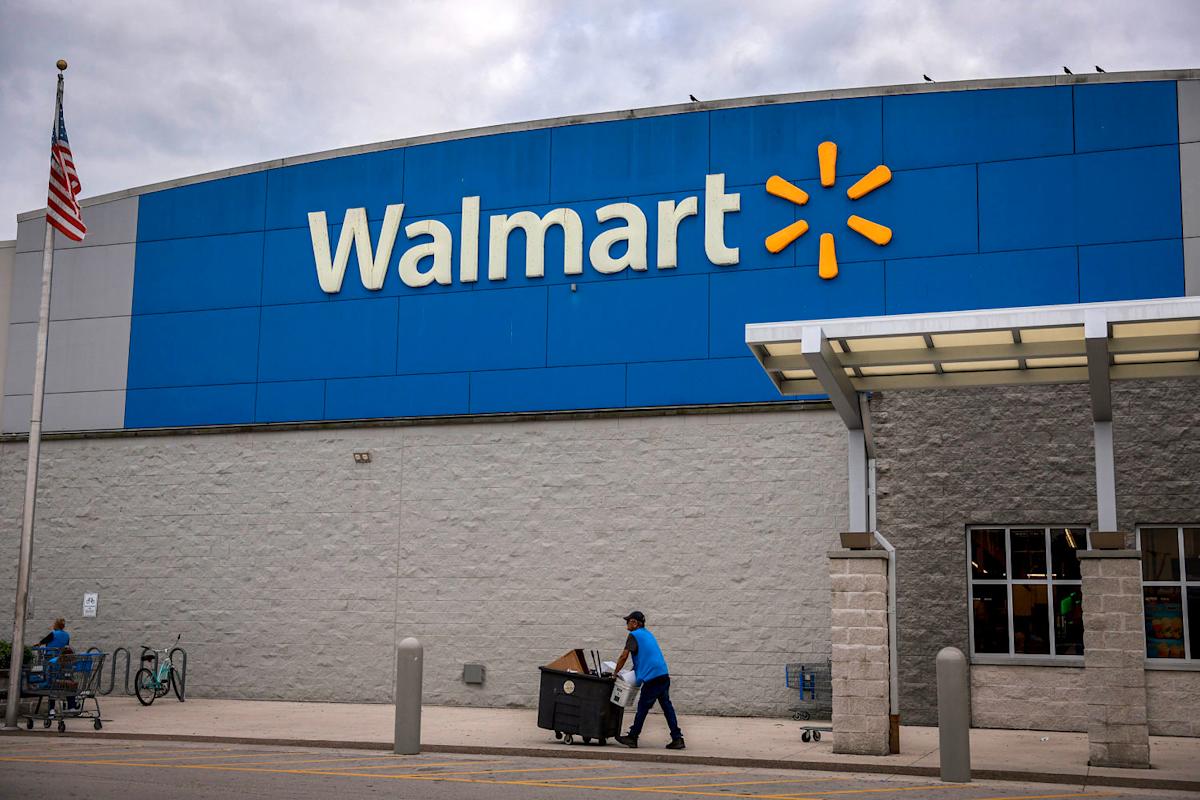Walmart, the world’s largest retailer, delivered a mixed bag of results for its fiscal first quarter ending April 30, 2025, beating earnings expectations while simultaneously warning customers about imminent price increases due to escalating tariff pressures. The Bentonville, Arkansas-based retail giant reported adjusted earnings per share of 61 cents, surpassing analyst forecasts of 58 cents, even as revenue slightly missed expectations at $165.61 billion compared to the anticipated $165.84 billion.
The company’s strong performance in key categories, particularly health and wellness and grocery segments, helped drive comparable store sales growth of 4.5%, with significant contributions from e-commerce expansion. Net sales reached $108.7 billion for the quarter, representing solid growth despite challenging market conditions. However, the celebration was tempered by stark warnings from company leadership about the unavoidable impact of current trade policies on consumer prices.
CEO Doug McMillon didn’t mince words during the earnings call, stating that despite the company’s commitment to maintaining low prices, “given the magnitude of the tariffs, even at the reduced levels announced this week, we aren’t able to absorb all the pressure given the reality of narrow retail margins.” This announcement marks a significant shift for a retailer that has built its reputation on everyday low prices and has historically been able to weather various economic pressures without passing costs directly to consumers.
The timing of these price increases couldn’t be more critical for American households already grappling with inflation concerns. Chief Financial Officer John David Rainey confirmed that consumers will begin experiencing these price hikes by the end of May, extending into June, affecting various product categories that Walmart depends on importing from international suppliers.
Financial Performance Highlights Strong Fundamentals
Despite the tariff challenges, Walmart’s first quarter demonstrated the company’s operational resilience and market position strength. The retailer reported gross margin improvements of 12 basis points and diluted earnings per share of $0.56, showcasing effective cost management and operational efficiency. The company’s e-commerce segment continued its robust growth trajectory, contributing significantly to the comparable store sales increase of 4.5%.
Net income for the quarter declined to $4.49 billion from $5.10 billion in the previous year, primarily attributed to various operational adjustments and market conditions. However, the company maintained its full-year guidance, projecting net sales growth of 3.0% to 4.0% and adjusted earnings per share between $2.50 and $2.60 for fiscal year 2026.
Tariff Impact Creates Pricing Pressure
The retail giant’s pricing strategy faces unprecedented challenges as tariff costs continue to mount pressure on imported goods. Senior Vice President Stephanie Schiller Wissink explained to investors that “given the magnitude of the tariffs, even at the reduced levels announced this week, we aren’t able to absorb all the pressure.” This situation represents a departure from Walmart’s traditional approach of absorbing cost increases to maintain competitive pricing.

The company’s extensive supply chain, which has historically provided insulation from trade disruptions due to significant domestic sourcing, now faces limitations as certain product categories remain dependent on international imports. CFO Rainey emphasized that “there are certain items, certain categories of merchandise that we’re dependent upon to import from other countries and the prices of those things are likely going to go up, and that’s not good for consumers.”
Market Outlook and Strategic Positioning
Looking ahead, Walmart’s management expressed cautious optimism about the current challenging environment. The company deliberately withheld specific second-quarter profit guidance, citing the “dynamic nature of the backdrop” and the difficulty in predicting near-term outcomes. This conservative approach reflects management’s prudent response to ongoing trade policy uncertainties.
Analysts remain generally positive about Walmart’s ability to manage through this period. Joseph Feldman from Telsey Advisory Group noted that Walmart’s diverse product portfolio provides flexibility in implementing price increases, potentially making them more palatable for consumers. Brian Jacobsen, chief economist at Annex Wealth Management, suggested that while tariffs may reduce demand somewhat, a complete market collapse remains unlikely.

